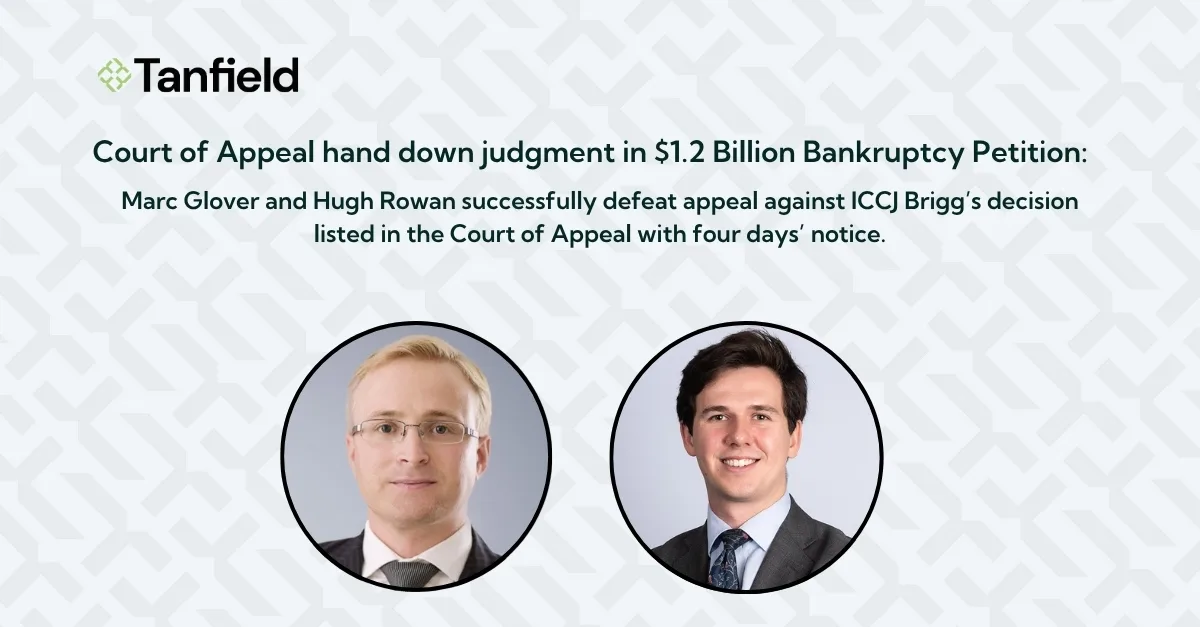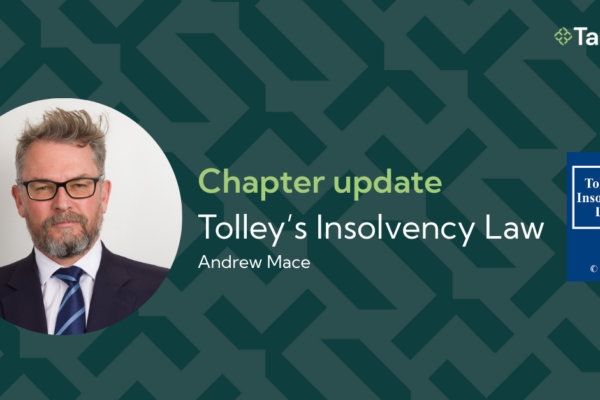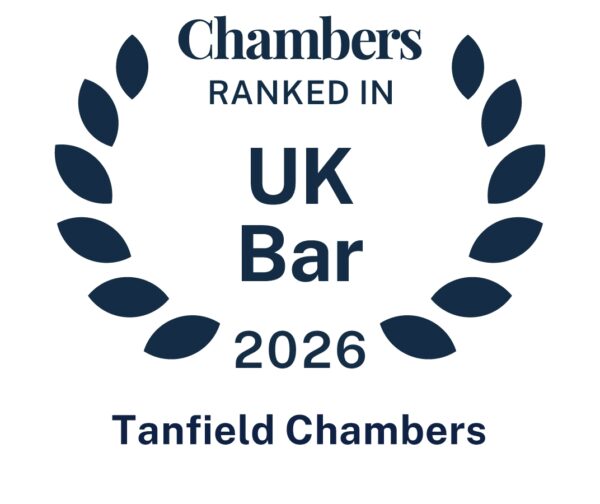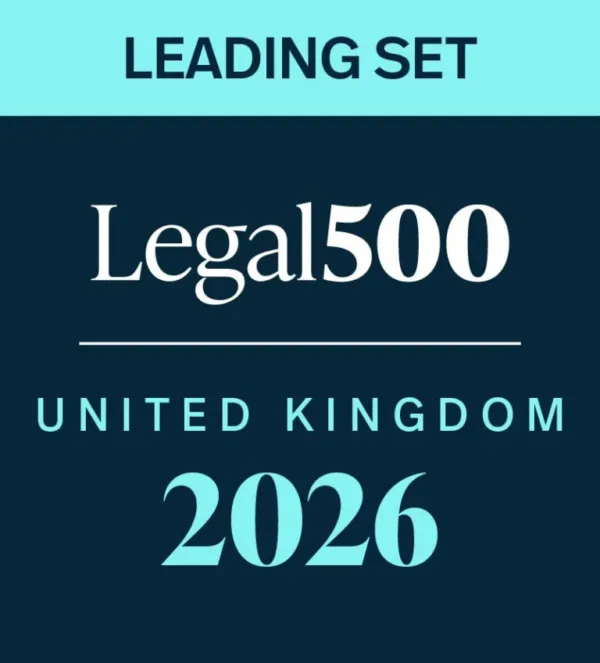Andrew Butler KC commences a short three-part series of articles examining the
Marc Glover and Hugh Rowan successfully defeat appeal against ICCJ Brigg’s decision listed in the Court of Appeal with four days’ notice

On 22 January 2025, Judgment was handed down in the case of Mobile Telecommunications Company KSPC v HRH Prince Hussam bin Saud bin Abdulaziz al Saud [2025] EWHC 85 (Ch). Following a five-day trial in December 2024, ICC Judge Briggs had determined that the Court did not have jurisdiction as the Respondent, HRH Prince Hussam bin Saud bin Abdulaziz al Saud (“Prince Hussam”) did not have a place of residence in England and Wales in the three years prior to the presentation of the Petition. https://tanfieldchambers.co.uk/1-2-billion-bankruptcy-petition/
One point that had arisen shortly before trial related to the question of limitation and raises a number of novel issues on which there is scant authority. Prince Hussam argued that the principal arbitration sum on which the Petition was based arose more than six years before the trial, and the presentation of the petition in 2022 did not stop time running, so that the alleged debts were (as of shortly before the trial in November 2024) statute-barred and could not support the Petition. One counter argument raised by the Appellant (“MTC”), was that time did not start to run until a reasonable period of time had elapsed for payment of the arbitration award. On this alternative case, MTC argued that limitation expired in mid-February 2025 (the “Limitation Point”).
As a result of the Limitation Point, MTC applied for their appeal to be expedited. This request was granted by Snowden LJ late in the evening on Friday 7 February 2025. Snowden LJ directed that the appeal brought by MTC would be heard four clear days later, namely Friday 14 February 2024, as a rolled-up hearing for permission to appeal with the substantive appeal to follow. This truncated window placed considerable pressure on the team who nonetheless rose to the challenge.
MTC’s substantive appeal was broken down into five grounds. In summary, the first ground alleged that the Court had applied the wrong test when considering whether Prince Hussam had a place of residence. MTC argued for a much simpler (and more expansive) test, namely whether there was a place of residence available to Prince Hussam during the Relevant Period. The remaining four grounds were – Prince Hussam argued – simply challenges to the Judge’s findings of fact.
After a day of oral argument the Court gave an oral indication that it would refuse permission to appeal. See here. The written judgement was handed down on Friday with Snowden LJ (with whom Newey and Whipple LJJ agreed) finding that MTC had no realistic prospects of success.
On the basis of the Judge’s findings of fact, the Court of Appeal concluded that the highest that MTC could put its argument was that during the Relevant Period (1 June 2019 to 1 June 2022) Prince Hussam had an expectation that if he had asked, he would have been given permission to stay as a guest in a property in London owned by his mother (“the Property”). This was not sufficient on any reading of the relevant test to conclude that Prince Hussam had a place of residence in the jurisdiction.
Of particular note, the Court accepted the argument on behalf of Prince Hussam that there is no principle of law that once a party is found to have a place of residence in the jurisdiction that would continue to be the legal position unless and until he could show that he had “abandoned” that earlier place of residence. Whether any inference can be drawn if the person had a place of residence at an earlier time is itself simply a question of fact. In this case, it was not in dispute that the Property had been Prince Hussam’s residence decades earlier when he was a university student in London. The Court of Appeal rejected MTCs submission that Prince Hussam had the burden of proving that he had “abandoned” the Property in the decades that followed his time as a student, and provided clarity in relation to the use of that term by the Court of Appeal in re Nordenfelt [1895] 1 QB 151.
Marc Glover has been instructed as Prince Hussam’s lead counsel in the dispute since 2023. The dispute has been the subject to a number of important interim decisions on appeal, which now feature in leading practitioner texts and well as heavily contested interlocutory hearing. See here for example. For the trial in December and for this Appeal, Hugh Rowan was also instructed, along with Peter Arden KC (Erskine Chambers) and Geraint Jones KC (3 Paper Buildings). Stephen Moverley-Smith KC (XXIV) and others acted on behalf of MTC.
The Court of Appeal’s judgment can be found here.
This content is provided free of charge for information purposes only. It does not constitute legal advice and should not be relied on as such. No responsibility for the accuracy and/or correctness of the information and commentary set out in the article, or for any consequences of relying on it, is assumed or accepted by any member of Tanfield or by Tanfield as a whole.







